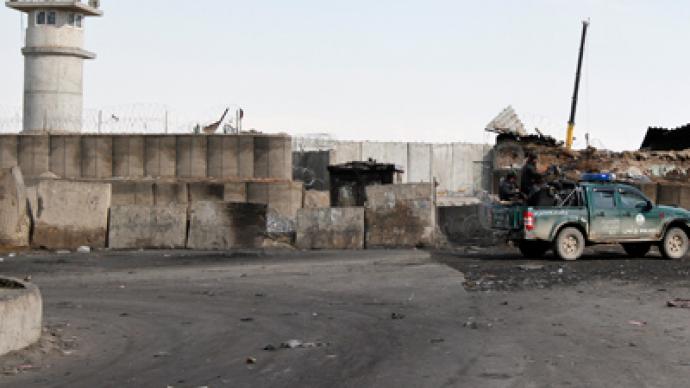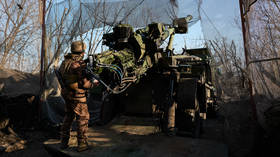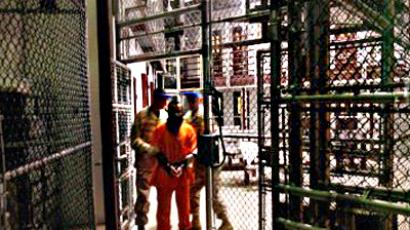US to hand over notorious military prison to Afghans

More than a decade after America’s war in Afghanistan began, the US will part with a notorious military prison there, signing off on Friday the control of the detention facility at the Bagram airbase to the Afghans.
Officials from both nations signed their names to a contract on Friday that will allow Afghans to assume control of the US Air Force prison in Bagram, Afghanistan. The infamous institute held over 1,700 detainees within its walls less than a year ago, which is roughly three times what the population of the prison was at the dawn of the Obama administration. Over the last decade reports of tortures and deaths have escaped Bagram, and with little known about the operation there it has since been considered by some as America’s Gitmo of the East, so to speak.As America readies to end its war overseas, the decision to divvy control of the prison to Afghanistan authorities marks the United States’ agreement to an issue that Afghans have long demanded. Authorities overseas have condemned the facility since the US started using it after their post-9/11 occupation of Afghanistan and with forces coming close to crossing the finish line of the War on Terror, seceding control will add to the list of wrap-up items the US must do before abandoning its decade-long military operation.Afghan Defense Minister Gen. Abdul Rahim Wardak signed the agreement on Friday on behalf of his country, and Reuters reports that a full transfer of control will be expected to finish in six months’ time. In all, the US says they will abandon their war by 2014, although last month the country’s secretary of defense, Leon Panetta, said an American presence may extend even past that deadline. “[W]e'll be able to make a transition from a combat role to a training, advise and assist role," explained Panetta last month in regards to America's next steps. The New York Times reported at the same time, however, that the drawdown of US troops that will signal a start to the end of the war will be matched by moving more of America’s Special Operations forces into Afghanistan to pick up the slack.General John Allen, the commander of the United States forces in Afghanistan, said handing over the Bagram prison is “yet another example of the progress of transition, and our efforts to ensure that Afghanistan can never again be a safe haven for terrorists” and “an important step forward in our Strategic Partnership negotiations.”The US has also apparently been asking the Taliban to open an office in the nation of Qatar so that its representatives can begin peace talks with other countries, although no plans have been set in stone yet. Afghan ambassador to Pakistan Umar Daudzai told reporters last month that those talks have not moved passed an “exploratory” stage, however. "When there's talks, it's supposed to be between the Afghan government and the Taliban. We have not reached to that stage although we wish to reach to that stage,” Daudzai told Reuters.Some Afghans are already applauding the handover of the Bagram detention facility. "This is something that Afghanistan needs to take charge of not America or any other foreign country,” Kabul resident Feda Mohammad, 58, tells Reuters. On top of a lengthy war and occupation, tensions have worsened overseas as of late following reports that US troops had charred and discarded copies of the Muslim holy book at the Bagram base last month. Speaking to Salon last year, Daphne Eviatar of Human Rights First said, “There are no laws under the rules of war governing how you treat detainees in this kind of armed conflict” at play in Afghanistan, so as a result, she added, “The US government says that those laws don’t apply beyond its own borders, and therefore no laws apply” at Bagram. “The current system of administrative hearings provided by the US military clearly violates international laws prohibiting arbitrary detention, and flies in the face of the well-founded wisdom of our top military leaders in the region who have warned repeatedly of the dangers of denying Afghan detainees due process,” Eviatar added in a press release that accompanied her group’s report on Bagram. “Beyond the imprisonment of many likely innocent people, the lack of due process erodes support for US forces in Afghanistan and ultimately undermines US goals there.”















